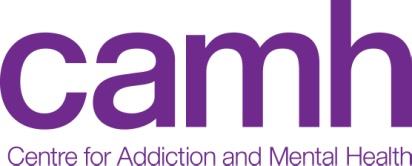
Substance Misuse Awareness Scale (AASIS-SAS)
Non-Confidential Summary
Market Need
Approximately 1% of the population in North America has a substance use (excluding alcohol) disorder. Although there are several treatment options available, less than 10% of persons received treatment for problems related to substance use. Although recognized as a core feature of psychotic disorders, impaired illness awareness and the minimization of the need for treatment in substance misuse are under-recognized and understudied phenomena that contribute to treatment nonadherence and poor clinical outcomes. Dependence on substance can have various negative consequences, including mental and physical health problems, family problems, work issues, problems at school, legal issues, and financial problems. In the United States, death due to overdose reached 72,000 in 2017. Although influential, the true prevalence of impaired illness awareness or illness denial in substance misuse and their impact on treatment adherence and outcomes requires further study. Improving awareness among persons with problems related to substance misuse may help avoid delays in seeking treatment, improve treatment adherence, reduce mortality and the need for hospitalization, and improve the quality of life for patients and their families. To accomplish this, a valid, reliable measure is required to accurately assess impaired awareness of substance misuse is needed. The aim was to develop an easy-to-use self-report scale to measure impaired awareness of substance misuse that would have the capability to detect small changes in illness awareness and assess the multidimensionality of insight into illness in this condition.
Technology Description
Our scientists have developed a novel and easy to administer self-report measure of illness awareness in substance misuse that can be easily tailored to any substance. The measure assesses the core domains of illness awareness, including general illness awareness, accurate attribution of symptoms, awareness of the need for treatment, and awareness of negative consequences. With 10-point Likert scales for each item, this scale has the capacity to detect small changes in illness awareness.
Stage of Development
Investigators are currently validating the scale and conducting tests for reliability. The scale will be validated in English and potentially other languages for wider use. Upon validation, the inventor plans to create an electronic version, which will facilitate data storage for research studies and clinical use.
Advantages
- Specific to the quantitative assessment of impaired illness awareness or illness denial
- A user-friendly tool with the capacity to detect small changes in illness awareness scores with the use of 10-point Likert scales for each item
- Provides a set of questions specific to substance misuse that are within the niche of understanding patient awareness of their illness
- Offers a screening mechanism to determine which patients are most suitable for medication adherence programs or interventions to enhance illness acceptance and medication adherence.
Business Opportunity
CAMH is leading the development and commercialization of this scale. We are seeking partnerships with pharma, biotech, and hospitals who may be interested in licensing this scale for use in clinical trials and patient assessment.
For more information contact:
Dr. Klara Vichnevetski
Director, Industry Partnerships & Technology Transfer
(416) 595-6056
Centre for Addiction and Mental Health
33 Russell Street, Suite 4039
Toronto, ONT, CDA M5A 2S1
